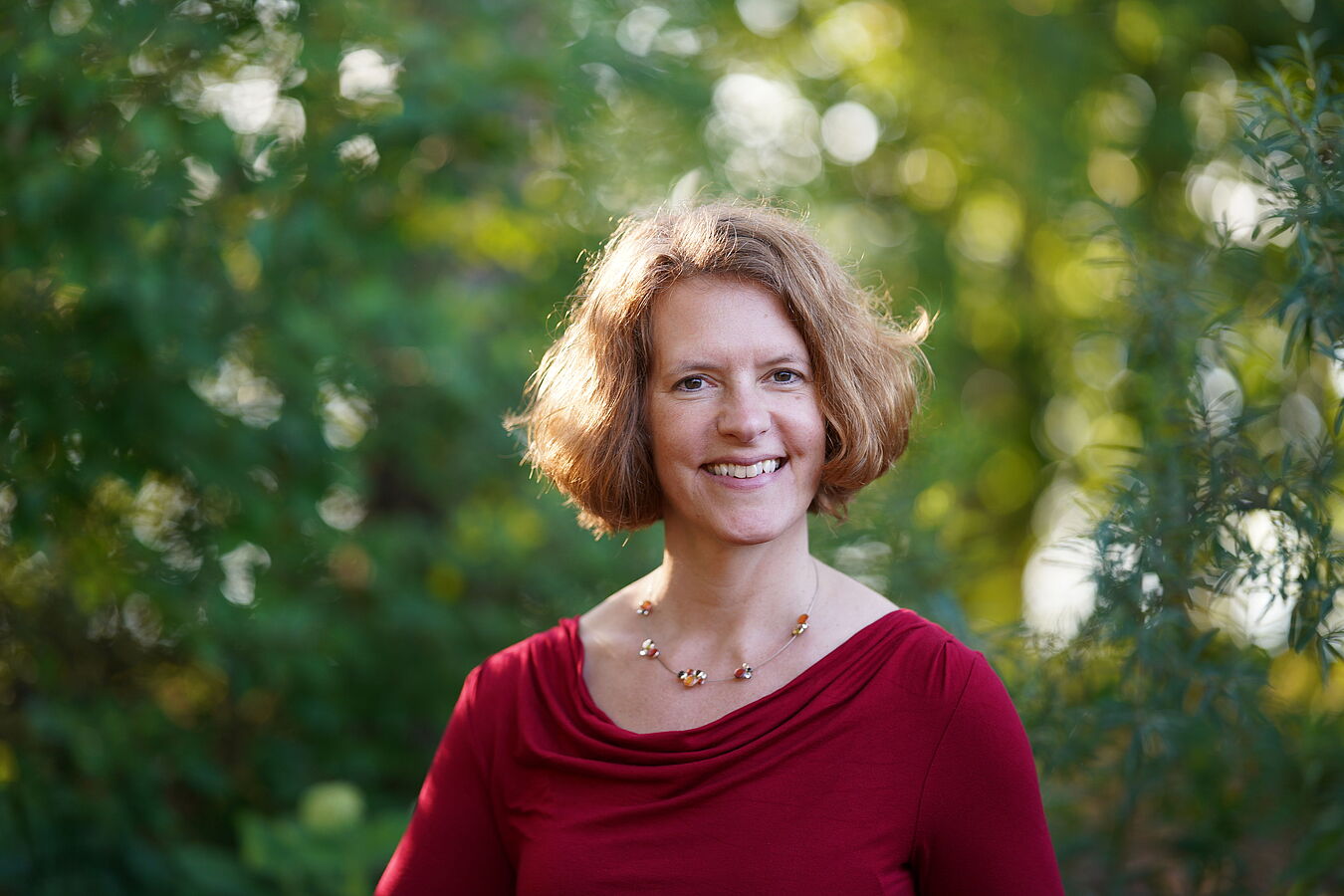This is why the Co-Director and Head of Science Management at the Leibniz Institute for Zoo and Wildlife Research (Leibniz-IZW) tries out new ideas for communicating knowledge to the public. Her goal is to raise awareness that species decline starts right on our doorstep and that urgent action is required. Her path to the top of the institute shows how important it is to adopt an interdisciplinary approach – and not to be influenced by prejudices.
Slave-making ants are fascinating. And Miriam Brandt, who wrote her doctorate on this species, still thinks so. The fact that this topic no longer plays a role in her professional life is due in part to a family celebration: an uncle asked her what she was working on. “When I told him that I was doing research on slave-making ants, he looked at me blankly and asked, ‘What for?’,” the biologist recalled. At that time, she was preparing her doctoral thesis and wondering what to do next: Should I stay in research or not? How can I make an impact with my work? This is not so easy with a topic that, as Miriam Brandt put it, “is of interest to perhaps 20 people in the whole world,” as her uncle’s response showed.
After two years as a postdoctoral researcher in California, USA, she applied to the Project Management Agency Jülich, where she supervised funding programs of the European Research Network (ERANET) for the German Federal Ministry of Education and Research (BMBF). One year later, she took the opportunity to get to know the BMBF’s Nutrition and Renewable Resources division in Berlin, having previously assisted them from her base in Jülich. She was soon offered a position as a biologist at the ministry’s Ethics and Law division. “I couldn’t imagine it at first because I was to be the only non-lawyer in the department. But the head of division convinced me to try it out at least,” she recalled. The job turned out to be extremely exciting, challenging and enlightening: “The best thing about it was working together with lawyers,” noted the science manager with a mischievous smile. In this context, she learned to appreciate interdisciplinary collaboration, such as in the case of legislation on animal testing: she provided the technical perspective, while learning about the legal aspects. “This was where the much-invoked synergies truly became tangible. It was a great experience that had a big impact on me,” remarked Miriam Brandt.
Just under three years later, she joined the Leibniz-IZW and became Assistant to the Director, Professor Heribert Hofer. That was in 2010 – the position had been newly created, and Miriam Brandt had “considerable room for maneuver and a lot of freedom.” In addition to performing her core tasks – strategic research planning, reporting, communication with funding agencies – she also used her time to implement knowledge transfer projects at the institute. She regards the transfer of knowledge to society as a key task for the Leibniz-IZW: “We have the mission to conduct research for wildlife conservation. This means that our scientific findings need to reach practitioners and be put to use,” she stated.
Public participation can be very beneficial for research. In one of the Leibniz-IZW’s citizen science projects, for example, camera traps are used to record wildlife in the city. “Publicly installed cameras would soon get stolen. Which is why we need people to collect data in their private gardens,” she explained. Beyond data collection, it is also important to the Leibniz IZW Co-Director that those involved in citizen science benefit from such projects, too, so that there is knowledge transfer. For this reason, she teamed up with partners to investigate if and how citizen scientists benefit from participation. The garden owners involved were invited to participate in the analysis of the data, and were also interviewed at the end of the project. “What surprised us was that the participants were very active in collecting data, but much less so in the analysis phase. Most of them did not see themselves in this role,” reported Miriam Brandt. Nevertheless, the citizen scientists gained more than just the fun of contributing to the project. “Responses such as ‘I see my garden with different eyes’ show that participation raises public awareness of the biodiversity on our doorstep,” stated the biologist. And this change in awareness plays a key role in counteracting species decline.
The ongoing interdisciplinary project VideT looks at the effectiveness of knowledge transfer from a slightly different perspective: it is about how science is communicated. Usually, the results take center stage, commented Miriam Brandt. But the fact that there are also many uncertainties in science, for example, is little known. In the VideT project, high school students use a video-based transfer tool to get to grips with wildlife research at the Leibniz-IZW: “The videos devote attention to the path to knowledge, e.g., how researchers develop the methods and design of a research project based on a particular issue,” the science manager explained. She hopes the project will provide further insight into how to enhance the impact of knowledge transfer. “We want to get the most out of our research results,” stated Miriam Brandt. After all, if we want to solve problems such as the biodiversity crisis, knowledge must also have an impact.
Wiebke Peters
The article was published in Verbundjournal 118 with a focus on career paths.


